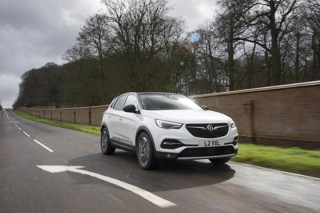After a couple of years of growth, the number of people paying company car benefit-in-kind (BIK) tax has fallen – provisionally at least.
HMRC is notoriously slow to issue data. The provisional figure is for 2016/17, one year ago. Think that’s bad? It has only just released company car CO2 emissions and fuel type figures for 2015/16!
How Treasury can set strategy on such outdated information, heaven only knows.
While the number of people paying BIK has fallen from 960,000 to 940,000, the amount they contributed to Treasury has risen from £1.49 billion to £1.85bn.
Despite forecasts of tax take falling as cars become more efficient, it seems Treasury is working the BIK thresholds to its advantage (this period is the first to include the 4% diesel supplement). And, thanks to WLTP, official CO2 emissions are set to surge, further swelling its coffers.
It shouldn’t, of course. The European Commission made it clear that CO2 rises caused by WLTP tests “should not negatively impact vehicle taxation by increasing costs” during the transitional period (until 2020).
In other words, national Governments should take corrective action to offset any increase in emissions – typically 10-15%.
We’ll know more in November’s Budget, but so far there have been no indications from Government that it will be resetting BIK to take WLTP into account.
It means drivers will be hit with the double-whammy of a rise in BIK and CO2.
In 2016/17, the average monthly BIK paid by drivers was £164, up from £129 in 2015/16 (as an aside, the monthly average for those who receive free fuel is £135, or £31 per week, the equivalent to almost 14,000 private miles a year in a 50mpg car, or 16,500 at 60mpg).
Unless Treasury starts listening, the average BIK paid by company car drivers could reach £300 by 2020. Fleets take note; let’s ramp up the lobbying!
























rosco7010 - 23/07/2018 14:42
Good article, which exactly states the current problem. The people at the treasury are either not aware or don't care about the damage they are causing to the fleet car industry in the UK, which has major repercussions for all new car sales. My belief is that the treasury believe that though the tax rates will drive people to a cash allowance, they assume incorrectly that the tax charge on cash will be the same as that for the company car, but they are wrong. A good proportion of those taking cash will opt for a second hand car. What this does is remove an important source of VAT income, as pre owned cars do not attract VAT. Unfortunately, as others have stated the HMRC figures of company car users doesn't highlight the number who will not renew their company car. By the time the HMRC and the Treasury understand the issue, the damage will be irreversible.